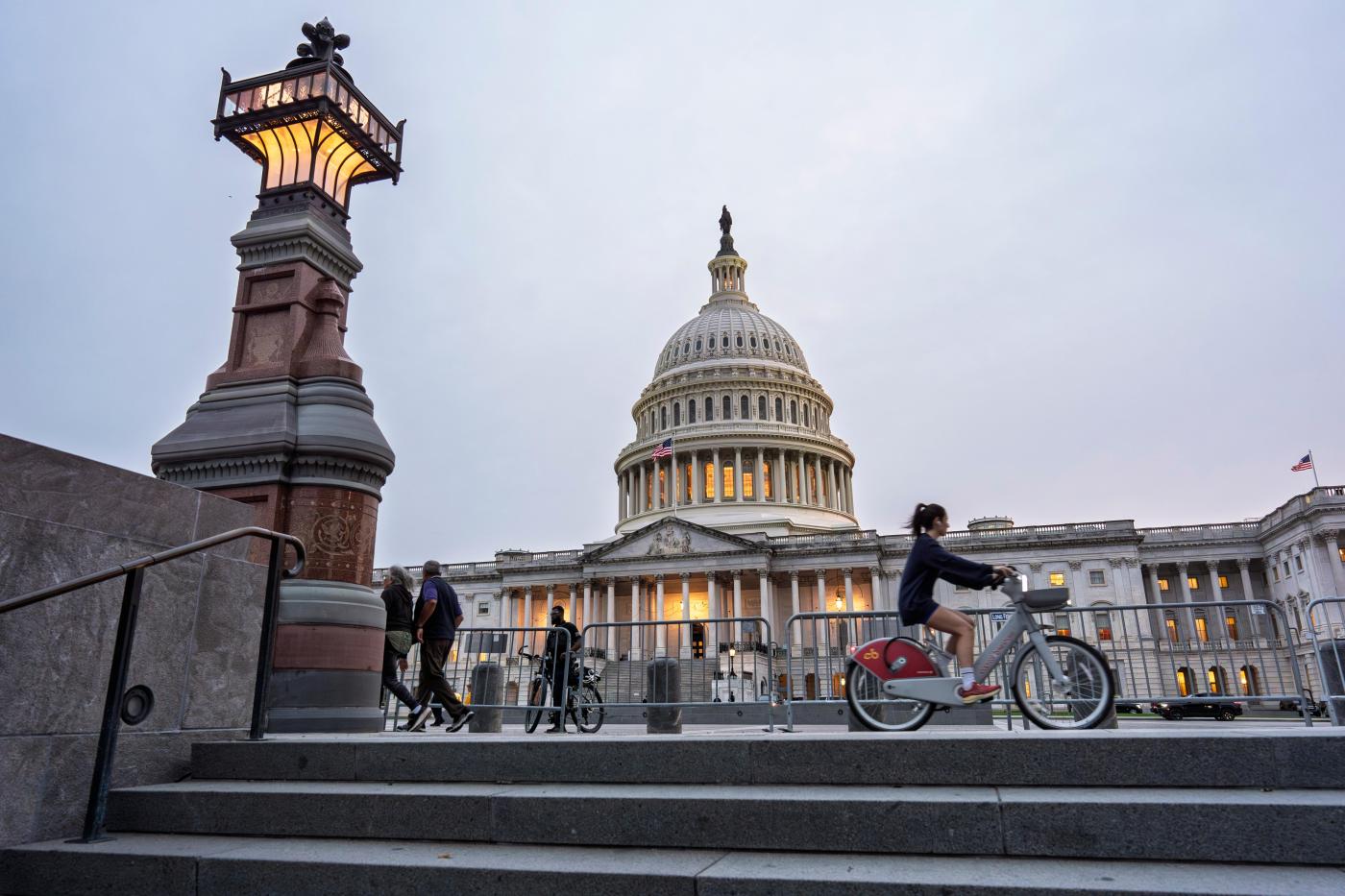A recent survey by the Pew Research Center reveals a significant level of discontent among American voters regarding both major political parties, just one year before the pivotal midterm elections. The report highlights that most Americans perceive both the Democratic Party and the Republican Party as lacking integrity in their governance, with 61% of respondents viewing the GOP as too extreme and 57% feeling the same about the Democrats.
The survey was conducted prior to the recent government shutdown, which may have affected public perceptions. Political analysts, including Peter Loge, director of the School of Media and Public Affairs at George Washington University, attribute this perception of extremism to politicians’ focus on mobilizing their bases. With elections increasingly being determined in primary contests, candidates cater to more ideologically entrenched voters, limiting their appeal to the broader electorate.
According to the Cook Political Report, only 17 of the 435 House seats are currently considered toss-ups for the upcoming midterms, indicating a landscape where many districts are leaning decisively toward either party. Most national politicians seem more concerned about potential primary challengers than appealing to moderate voters.
A clear divide exists in the feelings of party members. The survey found that 30% of Democratic voters expressed anger towards their party, primarily due to frustrations over what they perceive as a failure to effectively counter the policies of former President Donald Trump. In contrast, only 40% of Republicans report similar frustrations, a disparity attributed to their party’s current control of the White House and both chambers of Congress.
Todd Belt, director of the political management program at GW, noted that the Republican Party’s position of power influences its members’ sentiments. He stated, “A lot of this has to do with power, and a lot of it has to do with delivering for an electorate. Democrats can’t deliver. They have no power to deliver on the federal level.”
With the midterms approaching, the Democratic turnout may hinge on whether their discontent is directed internally or at Trump. Loge emphasized the need for the Democratic Party to articulate a clearer message beyond the current narrative of “Trump bad,” which, while compelling, may not suffice for electoral success.
Despite these challenges, historical trends suggest that Democrats could potentially regain control of the House. Over the past 40 years, the sitting president’s party has lost seats in the House during midterm elections in eight of ten instances. For example, Trump’s Republicans lost 40 House seats in the 2018 midterms.
The Pew survey also revealed differing sentiments between party supporters. Approximately 69% of Republican voters reported feeling hopeful about the future, compared to only 50% of Democrats. In terms of pride in their party, 52% of Republicans felt proud, whereas just 29% of Democrats shared that sentiment.
There is a noteworthy shift regarding economic policy perceptions, as Americans currently lean slightly towards Republicans on this issue, with only a 3% margin. This contrasts sharply with a 12-point advantage Republicans held two years ago, according to the Pew Research Center. Analysts warn that if economic conditions do not improve, Republicans may face challenges in the upcoming elections.
Loge remarked on the significance of economic sentiment, stating, “I think it’s very bad news for Republicans. President Trump’s policies are getting less popular, not more, across the board.” Concerns about the economy are a considerable driver of voter motivation.
The Pew Research Center also explored public opinion on various policy areas, finding that Americans favor the GOP over Democrats on issues like crime, immigration, gun policy, and the budget deficit. Conversely, Democrats received more support on LGBTQ+ rights, abortion, racial policies, climate change, and health care.
As the political landscape evolves and the government shutdown continues, Loge and Belt suggest that public sentiments towards both parties may worsen, noting, “These survey results might be a high-water mark for public opinion about the political parties and Congress.”
For further analysis on this topic, contact Cory Smith at [email protected] or on X (formerly Twitter) at x.com/Cory_L_Smith. Content from The National Desk is provided by Sinclair, the parent company of FOX45 News.







